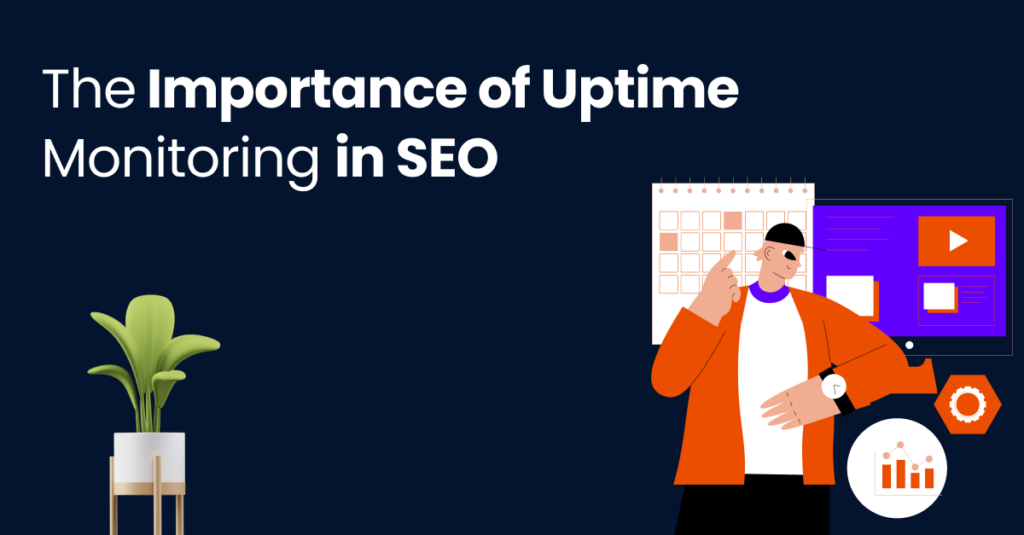
The Importance of Uptime Monitoring in SEO
Introduction
In the digital landscape, maintaining a strong online presence is crucial for businesses of all sizes. Central to this effort is Search Engine Optimization (SEO), which involves various strategies to enhance a website's visibility in search engine results. One often overlooked aspect of SEO is uptime monitoring — a critical practice that directly impacts a website's availability and, consequently, its search engine rankings.
Understanding Uptime and Downtime
Definition of Uptime
Uptime refers to the period during which a website is operational and accessible to users without any interruptions. It is typically measured as a percentage of time in a given period, such as 99.9% uptime indicating minimal downtime.
Definition of Downtime
Conversely, downtime represents the duration when a website experiences disruptions or is completely inaccessible to users. This could result from various issues, including server failures, network problems, or maintenance activities.
Importance of Uptime Monitoring for SEO
Impact on Search Engine Rankings
Search engines prioritize user experience, and a website's availability directly influences this metric. Websites that frequently experience downtime may suffer in search rankings as search engines prefer reliable sources of information for their users.
User Experience Considerations
Beyond SEO, uptime directly impacts user satisfaction. Visitors expect websites to load quickly and be available whenever they access them. A website that frequently faces downtime risks losing credibility and trust among its audience.
Factors Affecting Website Availability
Server Reliability
The quality of the hosting provider and server infrastructure plays a significant role in uptime. Reliable hosts offer robust solutions that minimize the risk of downtime due to hardware failures or maintenance.
Network Infrastructure
Issues with network connectivity or bandwidth can lead to temporary outages. Websites should be hosted on networks with redundant connections to mitigate this risk.
Software Issues
Regular software updates and maintenance are essential for website security and performance. However, poorly managed updates can sometimes cause unexpected downtime if not implemented carefully.
Common Causes of Downtime
Hardware Failures
Faulty hardware components, such as hard drives or power supplies, can lead to unplanned downtime until repairs or replacements are completed.
Software Updates
While necessary for security and functionality improvements, software updates can temporarily render a website inaccessible if compatibility issues arise.
Traffic Spikes
Sudden surges in website traffic, such as during viral content sharing or marketing campaigns, can overload servers and cause downtime if the infrastructure cannot handle the increased load.
Tools for Uptime Monitoring
Website Monitoring Services
Numerous online services specialize in monitoring website uptime and sending alerts when downtime is detected. These services often offer detailed reports and analytics to help website owners track performance over time.
Ping Tests and Alerts
Simple ping tests can be set up to regularly check a website's responsiveness. Automated alerts via email or SMS can notify administrators immediately if downtime occurs, enabling swift action to resolve issues.
Best Practices for Uptime Monitoring
Setting Up Automated Alerts
Configure monitoring tools to send alerts to multiple stakeholders, ensuring that downtime is promptly addressed by the appropriate team members.
Establishing Redundancy
Implement redundant systems, such as backup servers or cloud hosting, to ensure continuous website availability even if one system fails.
Regular Performance Audits
Conduct periodic audits to assess website performance and identify potential vulnerabilities or bottlenecks that could lead to downtime.
Case Studies of Uptime Impact on SEO
Examples from Industry
Several case studies highlight how uptime directly correlates with SEO performance. Websites that prioritize uptime consistently outperform competitors in search engine rankings due to improved user experience metrics.
Conclusion
Uptime monitoring is not just about maintaining technical reliability; it is a fundamental aspect of SEO strategy. By ensuring your website remains accessible and performs optimally, you enhance user satisfaction, boost search engine rankings, and ultimately drive business success.
FAQs
What is uptime monitoring?
Uptime monitoring involves tracking the availability and performance of a website to ensure it remains accessible to users without interruptions.
How does downtime affect SEO?
Frequent downtime can negatively impact SEO by reducing a website's reliability and user experience, which are crucial ranking factors for search engines.
Which tools are best for uptime monitoring?
Popular tools for uptime monitoring include Pingdom, Uptime Robot, and GTmetrix, each offering unique features like alerts and performance analytics.
How often should I check my website's uptime?
It's recommended to monitor your website's uptime continuously using automated tools that can provide real-time alerts in case of downtime.
Can downtime due to maintenance affect SEO?
Temporary downtime due to scheduled maintenance typically has minimal impact on SEO if managed properly with advance notice and minimal disruption.